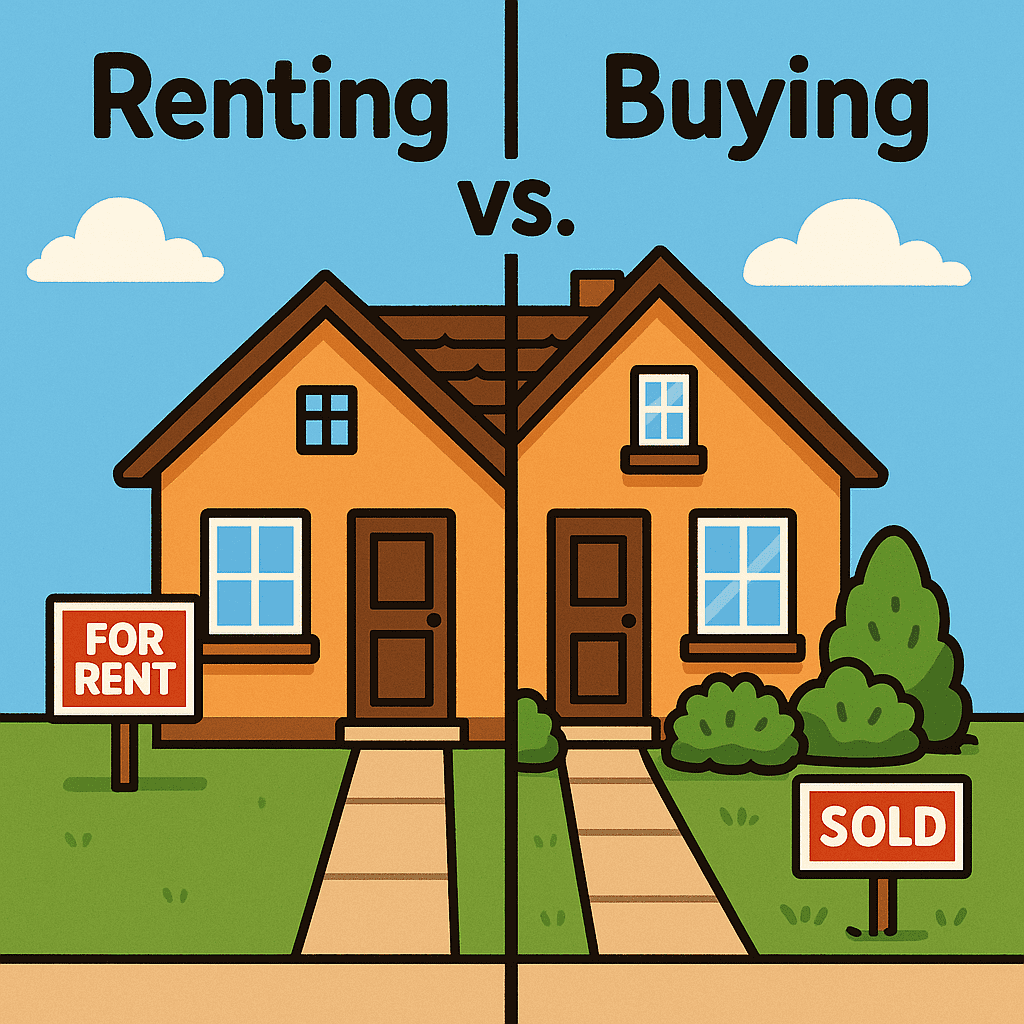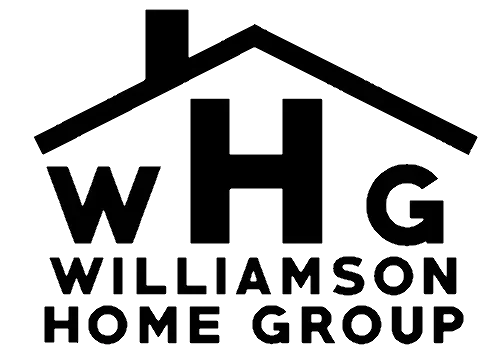
Choosing between renting vs. buying a home is one of the biggest money decisions you’ll ever make. Many people think buying is always better than renting. But that’s not always true. The right choice depends on your money situation, lifestyle, and future plans.
This guide will help you understand when renting makes sense and when buying is the better option. We’ll look at the real costs of both choices. You’ll learn how to make the best decision for your situation.
Understanding the True Costs of Renting vs. Buying
When comparing these two housing options, you need to look at all the costs involved. Many people only think about monthly payments. But there are many other expenses to consider.
Renting Costs
Renting seems simple at first. You pay rent each month and that’s it. But there are other costs too:
- Monthly rent payment
- Security deposit (usually 1-2 months rent)
- Renter’s insurance
- Utility bills
- Moving costs when you change homes
Most renters don’t pay for repairs or maintenance. The landlord handles these costs. This can save you thousands of dollars each year.
Buying Costs in the Renting vs. Buying Comparison
Homeownership comes with many costs beyond your monthly payment. Here’s what you’ll pay:
- Down payment (3-20% of home price)
- Monthly mortgage payment
- Property taxes
- Homeowners insurance
- PMI (if you put down less than 20%)
- Maintenance and repairs
- HOA fees (if applicable)
- Closing costs (2-5% of home price)
These extra costs can add up to hundreds or thousands of dollars each month.
When Renting vs. Buying Favors Renting
Renting isn’t just for young people or those who can’t afford to buy. There are many good reasons to rent instead of buy.
You’re Not Ready to Stay Put
If you might move in the next few years, renting is usually better. Buying and selling a home costs a lot of money. You need to stay in a home for at least 3-5 years to make buying worth it.
Renting gives you flexibility. You can move for a new job or life change without losing money on selling costs.
Your Finances Aren’t Stable Yet
Homeownership requires steady income and good credit. If your job isn’t secure or your income changes a lot, renting might be safer.
You also need money saved for emergencies. When you own a home, big repairs can cost thousands of dollars. Renters don’t have this worry.
Lower Monthly Costs in the Renting vs. Buying Analysis
In many areas, renting costs less each month than buying. This gives you more money for other goals like paying off debt or saving for retirement.
Use a housing calculator to compare real costs in your area. Don’t forget to include all the extra costs of homeownership.
You Don’t Want Maintenance Responsibilities
Homeowners spend a lot of time and money on upkeep. You’ll need to fix broken appliances, maintain the yard, and handle repairs.
Renters can call the landlord when something breaks. This saves time and money. It also reduces stress for people who don’t like dealing with home repairs.
When the Renting vs. Buying Decision Favors Buying
Buying a home isn’t right for everyone. But it can be a smart choice in certain situations.
You’re Ready to Settle Down
If you plan to stay in the same area for many years, buying often makes financial sense. You’ll build equity instead of paying someone else’s mortgage.
The longer you stay, the more money you’ll likely save compared to renting. This is especially true in areas where home values go up over time.
You Have Stable Finances
Buying works best when you have steady income and good credit. You should also have money saved for emergencies beyond your down payment.
A good rule is to have 3-6 months of expenses saved after you buy. This helps you handle unexpected repairs or job loss.
Rent Prices Are Rising Fast
In some areas, rent goes up every year. If rents are rising faster than home prices, buying might save you money long-term.
When you buy with a fixed-rate mortgage, your payment stays the same for 30 years. This protects you from rising housing costs.
Building Wealth Through the Renting vs. Buying Choice
Homeownership can help you build wealth over time. As you pay down your mortgage and home values rise, you gain equity.
This equity can be used for other goals like funding retirement or paying for college. Renters don’t build this type of wealth through housing.
How to Calculate Your Renting vs. Buying Options
To make the best choice, you need to crunch the numbers. Here’s how to compare both options in your situation:
Calculate Total Monthly Costs
For renting, add up:
- Monthly rent
- Renter’s insurance
- Utilities you pay
For buying, include:
- Mortgage payment
- Property taxes
- Homeowners insurance
- PMI (if needed)
- Maintenance costs (budget 1-2% of home value per year)
- HOA fees
Consider Opportunity Cost
When you buy a home, your down payment money is tied up. If you rented instead, you could invest that money in stocks or other investments.
Calculate what your down payment could earn in investments. Compare this to the equity you’d build by buying.
Factor in Tax Benefits
Homeowners can deduct mortgage interest and property taxes on their tax returns. This can save you money each year.
But remember, tax laws change. Don’t buy a home just for tax benefits.
Special Situations in the Renting vs. Buying Debate
Some situations make this housing decision more complex. Here are a few to think about:
First-Time Buyer Programs
Many areas offer special programs for first-time buyers. These might include:
- Lower down payment requirements
- Help with closing costs
- Better interest rates
These programs can make buying more affordable than you think.
Rent-to-Own Options
Some landlords offer rent-to-own agreements. Part of your rent goes toward buying the home later. These deals can be good or bad depending on the terms.
Read any rent-to-own contract carefully. Make sure you understand all the rules and costs.
Market Conditions
Sometimes market conditions strongly favor one option over the other. In a hot seller’s market, you might pay too much for a home. In a buyer’s market, you might get a great deal.
Don’t try to time the market perfectly. Focus on your personal situation and long-term plans.
Making Your Final Renting vs. Buying Decision
This housing choice is personal. What works for your friend or family member might not work for you.
Ask Yourself These Questions
- How long do I plan to stay in this area?
- Is my income stable and likely to grow?
- Do I have enough saved for a down payment and emergencies?
- Am I ready for the responsibilities of homeownership?
- What are my long-term financial goals?
Get Professional Help
Consider talking to a financial advisor or real estate agent. They can help you understand your local market and personal situation.
A mortgage lender can also show you what you qualify for. This helps you understand your real buying options.
Don’t Rush the Decision
Take time to think through your choice. Both renting and buying have pros and cons. The right answer depends on your unique situation.
Remember, you can always change your mind later. Many people rent for a while and then buy when they’re ready.
Conclusion
The renting vs. buying decision isn’t always clear-cut. Both options can be smart depending on your situation. Renting offers flexibility and lower upfront costs. Buying can help you build wealth and provide stability.
Look at your finances, lifestyle, and future plans. Calculate the real costs of both options in your area. Don’t let others pressure you into a choice that doesn’t fit your life.
Whether you choose to rent or buy, make sure it aligns with your goals and budget. The best housing choice is the one that helps you build the life you want while staying financially secure.
Remember, there’s no shame in renting if that’s what works best for you right now. Many successful people rent by choice. Focus on making the decision that’s right for your current situation and future dreams.
Read our other articles:
The Hidden Costs of Homeownership
Buying a Home with Bad Credit: Alternative Financing Options
Need Help Buying or Selling Your Home?
Browse listings: www.buyclarksvillehomes.com
Call us: (931) 320-6987
Email: joey@williamsonhg.org
Each Keller Williams office is independently owned and operated.





